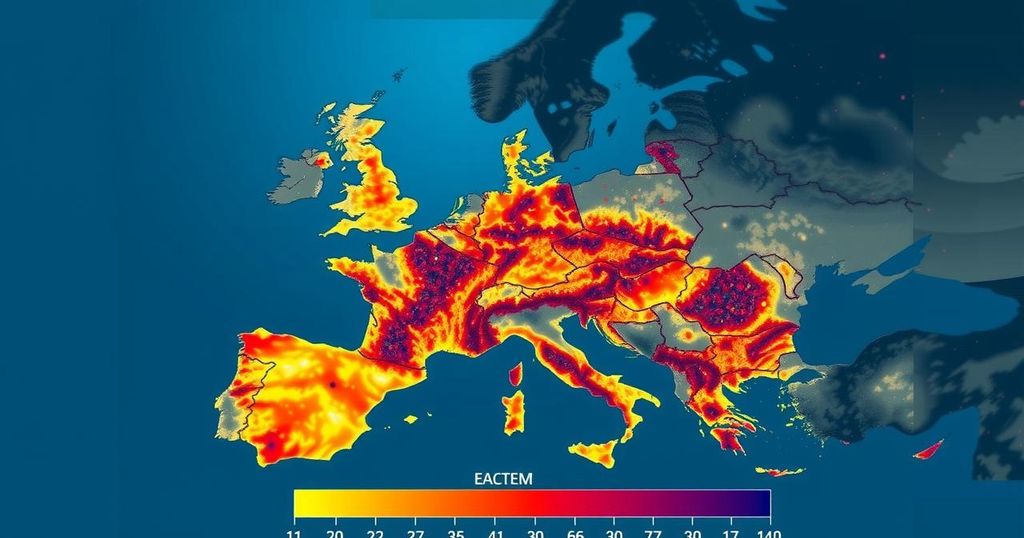EU Scientists Predict 2024 to Be Hottest Year on Record

The European Union’s Copernicus Climate Change Service forecasts 2024 will be the hottest year on record, surpassing 2023 due to significant global temperature increases related to climate change. This alarming trend highlights the urgency for global leaders to take decisive action at the upcoming COP29 summit to address fossil fuel emissions, as failure to act could lead to critical breaches of the Paris Agreement’s temperature limits.
According to the European Union’s Copernicus Climate Change Service (C3S), 2024 is poised to become the warmest year on record, surpassing 2023. Released ahead of the forthcoming U.N. COP29 climate summit in Azerbaijan, C3S emphasized the unprecedented rise in global temperatures from January to October, which would require an extraordinarily drastic decrease in temperature anomalies for 2024 not to set this record. C3S Director Carlo Buontempo remarked that climate change is fundamentally responsible for this situation, as the planet experiences warming effects in all regions and ocean basins. Moreover, 2024 will mark the initial instance where global temperatures exceed 1.5 degrees Celsius above pre-industrial levels, which could be reached as early as 2030 if current emissions trends persist. Recent climatic events exemplify the harsh realities associated with this warming, including devastating flash floods in Spain, widespread wildfires in Peru, and significant flooding in Bangladesh that severely impacted food supplies. Such occurrences underscore the urgent need for countries to take decisive action to mitigate climate change impacts, with experts urging stronger commitments during the COP29 discussions. Experts are clear that unless there are substantial cuts in carbon dioxide emissions from fossil fuel consumption, the situation will only exacerbate, further contributing to extreme weather phenomena. C3S continues to compile and analyze global temperature records dating back to the mid-19th century. Acknowledging that the escalation in temperatures and consequential weather extremes represent critical challenges for global governance, the scientific community calls for immediate, robust policy measures to adhere to the targets established in the Paris Agreement and avert the most detrimental effects of climate change.
The topic of climate change and its impacts has garnered significant attention globally, particularly as temperatures continue to rise at alarming rates. The European Union’s Copernicus Climate Change Service regularly analyzes global temperature trends, providing essential data to inform climate policy and action efforts. As scientists emphasize the need for urgent reforms, financial backing for climate initiatives, and strategic emission reductions, the impending COP29 summit presents a critical opportunity for nations to collaborate on solutions to combat global warming. This context highlights the dire urgency of addressing fossil fuel consumption and its role in exacerbating climate-related disasters and disturbances, affecting food security and public safety worldwide.
In conclusion, the forecast by C3S indicates that 2024 is set to be the hottest year on record, primarily driven by the ongoing impacts of climate change and increasing greenhouse gas emissions. As the clock ticks toward a potential breach of the critical 1.5 degrees Celsius threshold established by the Paris Agreement, it becomes imperative for nations to engage in substantial and sustained efforts to curtail fossil fuel dependence and enhance climate resilience. The catastrophic weather events witnessed globally serve as a clarion call for action as the international community prepares to convene at COP29 for urgent discussions on climate financing and adaptation measures.
Original Source: www.swissinfo.ch






